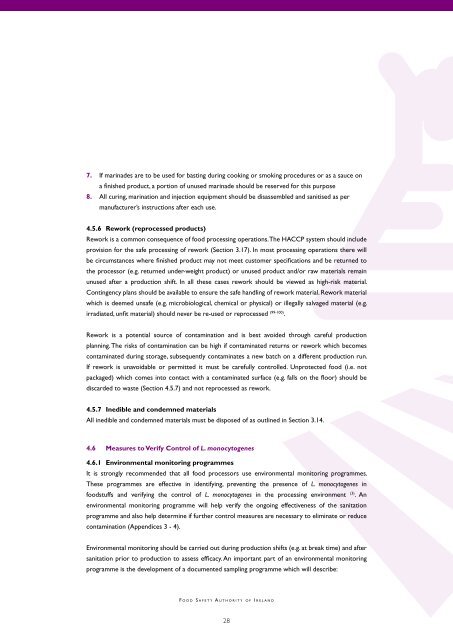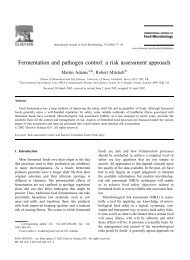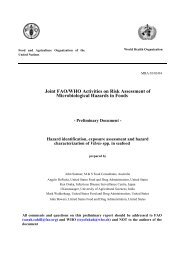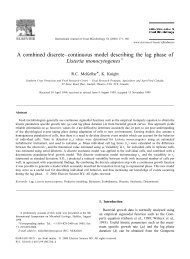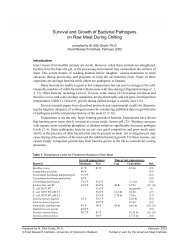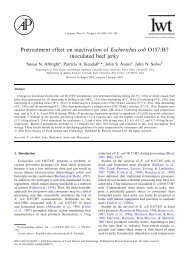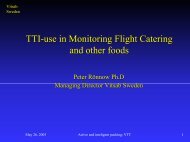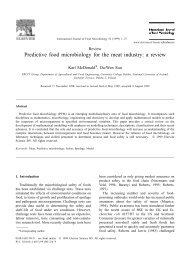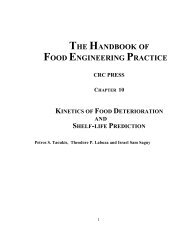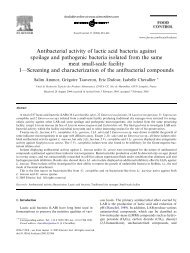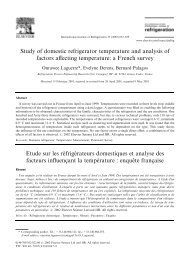Download - SMAS
Download - SMAS
Download - SMAS
- No tags were found...
You also want an ePaper? Increase the reach of your titles
YUMPU automatically turns print PDFs into web optimized ePapers that Google loves.
7. If marinades are to be used for basting during cooking or smoking procedures or as a sauce ona finished product, a portion of unused marinade should be reserved for this purpose8. All curing, marination and injection equipment should be disassembled and sanitised as permanufacturer’s instructions after each use.4.5.6 Rework (reprocessed products)Rework is a common consequence of food processing operations. The HACCP system should includeprovision for the safe processing of rework (Section 3.17). In most processing operations there willbe circumstances where finished product may not meet customer specifications and be returned tothe processor (e.g. returned under-weight product) or unused product and/or raw materials remainunused after a production shift. In all these cases rework should be viewed as high-risk material.Contingency plans should be available to ensure the safe handling of rework material. Rework materialwhich is deemed unsafe (e.g. microbiological, chemical or physical) or illegally salvaged material (e.g.irradiated, unfit material) should never be re-used or reprocessed (99-100) .Rework is a potential source of contamination and is best avoided through careful productionplanning. The risks of contamination can be high if contaminated returns or rework which becomescontaminated during storage, subsequently contaminates a new batch on a different production run.If rework is unavoidable or permitted it must be carefully controlled. Unprotected food (i.e. notpackaged) which comes into contact with a contaminated surface (e.g. falls on the floor) should bediscarded to waste (Section 4.5.7) and not reprocessed as rework.4.5.7 Inedible and condemned materialsAll inedible and condemned materials must be disposed of as outlined in Section 3.14.4.6 Measures to Verify Control of L. monocytogenes4.6.1 Environmental monitoring programmesIt is strongly recommended that all food processors use environmental monitoring programmes.These programmes are effective in identifying, preventing the presence of L. monocytogenes infoodstuffs and verifying the control of L. monocytogenes in the processing environment (3) . Anenvironmental monitoring programme will help verify the ongoing effectiveness of the sanitationprogramme and also help determine if further control measures are necessary to eliminate or reducecontamination (Appendices 3 - 4).Environmental monitoring should be carried out during production shifts (e.g. at break time) and aftersanitation prior to production to assess efficacy. An important part of an environmental monitoringprogramme is the development of a documented sampling programme which will describe:F O O D S A F E T Y A U T H O R I T Y O F I R E L A N D28


